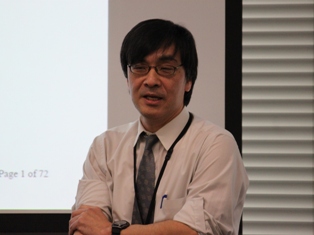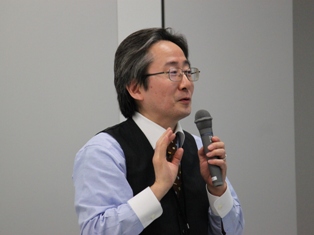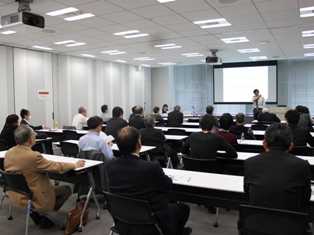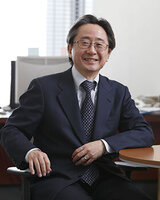Event Report Global Economy
Professor Kiminori Matsuyama Seminar "Globalization and Synchronization of Innovation Cycles"
January 14, 2015,
14:00
- 16:00
Venue: CIGS Meeting Room3



(Professor Matsuyama, Dr. Kobayashi from the left)
Seminar outline
Title: "Globalization and Synchronization of Innovation Cycles"Speaker: Kiminori Matsuyama, Professor, Department of Economics, Northwestern University
Moderator: Keiichiro Kobayashi, Research Director, CIGS
Program
Program(PDF:87KB)
Presentation
Presentation by Prof. Matsuyama(PDF:9392KB)
Paper
Paper(PDF:4039KB)
Abstract of the speech
Furthermore, synchronization occurs faster (i.e., with a smaller reduction in trade costs) when the country sizes are more unequal, and it is the larger country that dictates the tempo of global innovation cycles with the smaller country adjusting its rhythm to the rhythm of the larger country.
These results suggest that adding endogenous sources of productivity fluctuations might help improve our understanding of why countries that trade more with each other have more synchronized business cycles.
Speaker's introduction
PhD: Harvard University, 1987
Kiminori Matsuyama's research interests concern international trade and economic growth and development. He is particularly interested in understanding the processes that lead to macroeconomic instability over time and also inequality across countries, regions, and households. He is a Fellow of Econometric Society. He was the 1996 winner of the Nakahara Prize awarded to the best young economist by the Japanese Economic Association. He currently serves as an associate editor of the Journal of Economic Theory and the Journal of the Japanese and International Economies.
